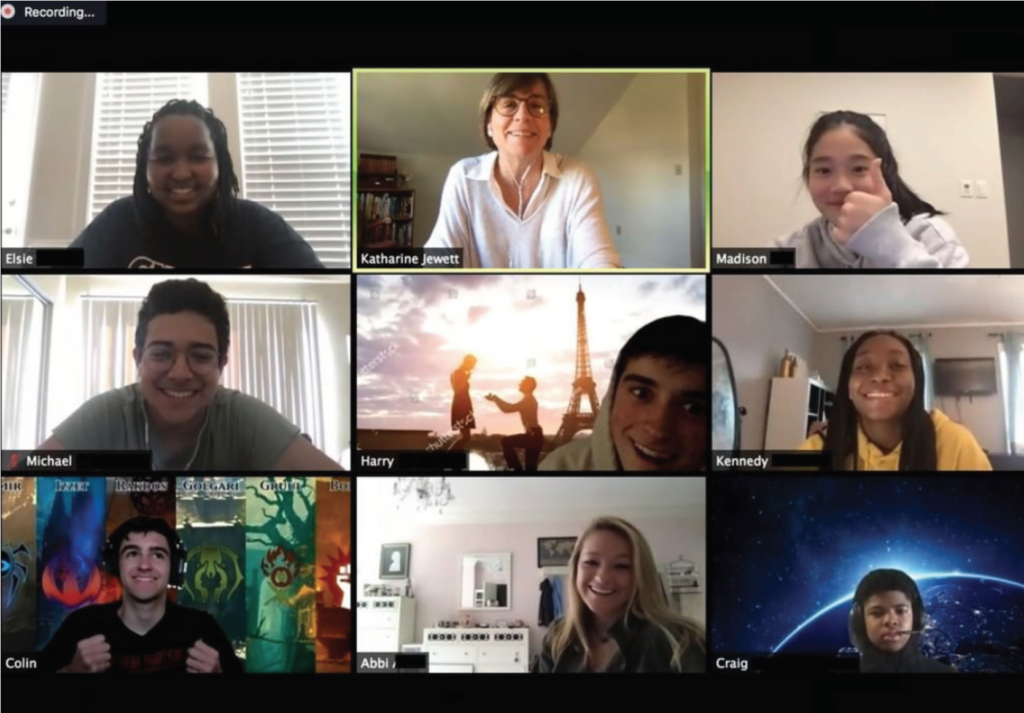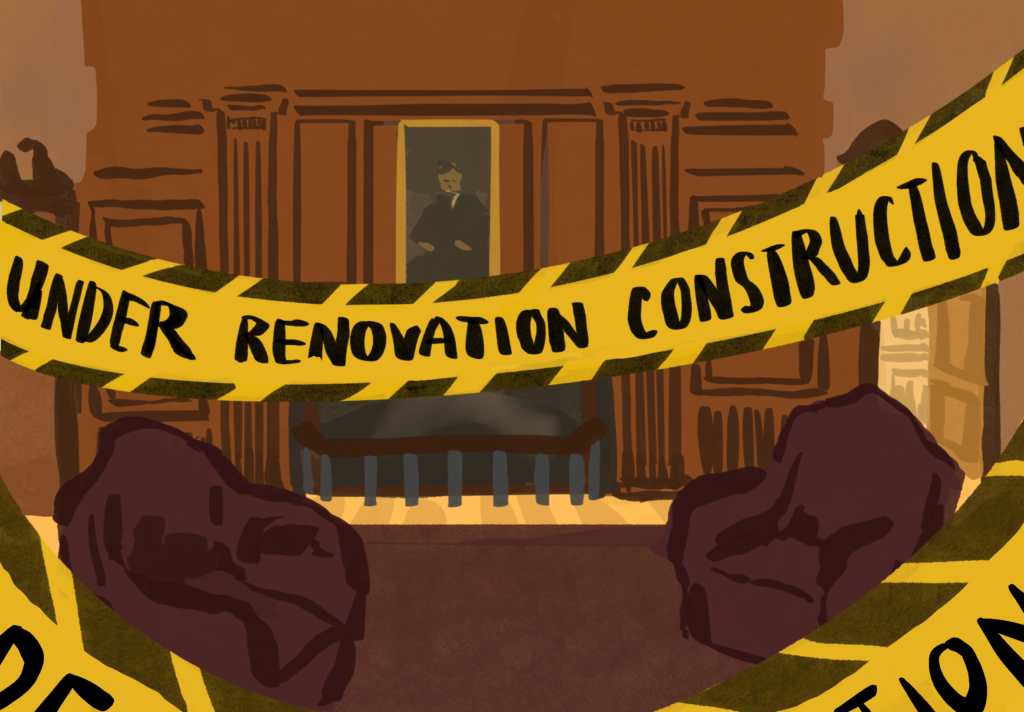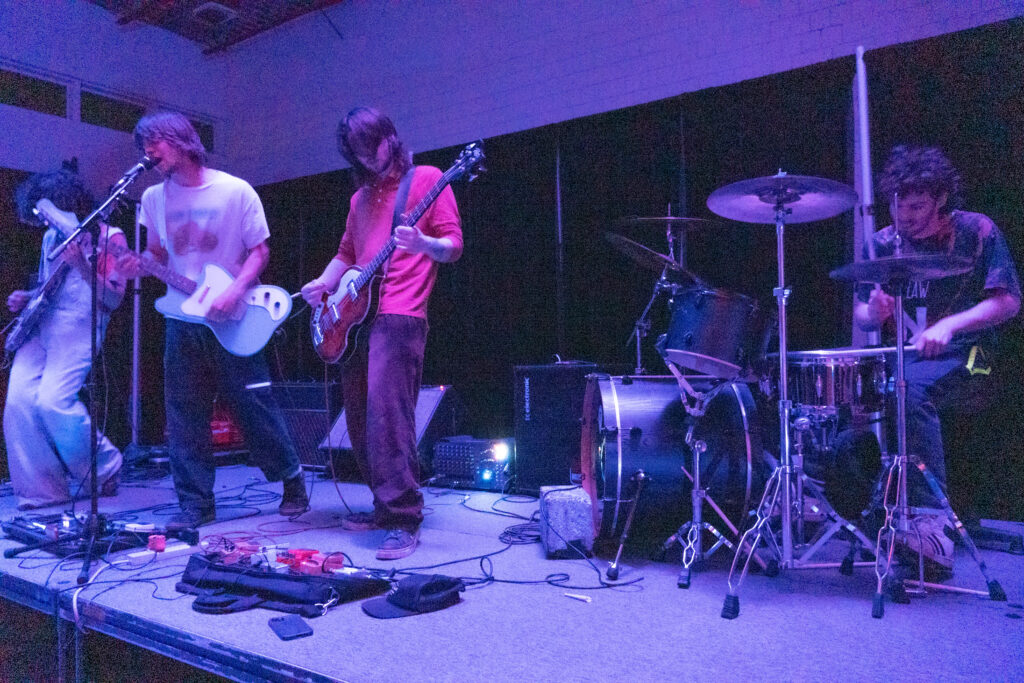
Choate students and faculty are trying to make the most of their online communications despite recent challenges with virtual classes.
Photo Courtesy of Choate Instagram
Despite the efforts of ITS and other members of the Choate community, teachers and students are still experiencing challenges due to the limited nature of online classes.
Many international students, especially those in Asia, are encountering challenges in joining live, synchronous classes because of the time difference, often eleven or more hours ahead of Wallingford.
Emily Cha ’21, who is staying in Seoul, said, “For all of my classes, I try to stay up and be live, but it’s quite taxing to do so with the 13-hour time difference.” Many overseas students choose to join live classes as much as they can and watch recorded videos for the classes they miss. This difficulty in joining late classes may hurt students’ quality of learning.
Teachers are undergoing their own difficulties with teaching online. Because of the inaccessibility of equipment, teachers in the Science Department are not able to carry out experiments to expand their students’ understanding. Mr. Larsen explained, “As a physics teacher, I miss being able to grab equipment and use it to help explain a topic.”
Ms. Foster mentioned, “I teach term-long courses, so my students are mostly all new to me. Trying to get to know them as individuals and making them feel like they are a unit as a class is so much more challenging. The sense of class identity and being a community is just a little bit harder.”
Online classes have especially affected students in Signature Programs. For example, students in the Environmental Immersion Program (EIP) at the Kohler Environmental Center (KEC) are struggling to find ways to finish their research projects that they previously planned to complete on campus this spring. Cha, who is part of the EIP, said, “I was supposed to spend all of spring term working in the greenhouse for my KEC natural science experiment, but I can’t do that anymore. Our teachers are trying to work out something we could do virtually, but it’s simply not the same.”
Head of the EIP Mr. Joseph Scanio said, “In Ecology class, we would’ve made sure that we were outside for certain classes to take advantage of our 160-acre classroom.” One of the key components of the program is being in nature and analyzing the plants and trees in real life at the KEC campus. “Students won’t be able to do their experiments themselves. Even though they did all the design and set-up beforehand, they still won’t be able to do the data collection. We also won’t get to go to the law conference this spring and have other types of field trips,” Mr. Scanio said.
Although a lot of components are missing in an online classroom, Mr. Scanio, Ms. Lena Nicolai, and other EIP faculty are trying to take advantage of the opportunities from the pandemic. In Nature Photography, for example, because students are currently living all over the world, the diversity of locations enable greater variety in the photos. In Ecology, students are looking at models of Covid-19 and applying them to their classwork.
Students in the Science Research Program (SRP) have been similarly impacted. Allen Zheng ’21, a member of SRP’s biology section, said, “The switch to virtual learning has impacted SRP more than it has my other classes. Before we left for break, we had been doing a lot of hands-on work and experiments in the lab, and that is something you can’t really replicate online.”
Mirielle Ma ’21, also a member of SRP’s biology section, said, “Our SRP cohort is really close, so it is disappointing that we will not be able to see each other in person anymore. We are all writing our review articles right now, and we’ve been supporting each other through this process and keeping in touch with one another through our class group chat.”
Fortunately, the John F. Kennedy Program in Government and Public Service will not suffer as many of the compromises that other signature programs have. Mr. Ned Gallagher, who advises the program, said, “Nothing in the JFK program is that different from the experiences of all students, as the heart of our program is built around courses offered to all.”
Nevertheless, there have been adjustments to how the students complete their time in the program. The program’s seniors were set to give public presentations in the spring about the internships they had completed over the summer or topics in government and public service that they had studied in-depth over their time in the program. They will now be recording these presentations then sharing the videos with the community. The program is well supported, but Mr. Gallagher said that online classes are “no substitute for in-person exchanges at the seminar table.”
Regardless of the initial difficulties of online learning, teachers and students have an optimistic view of the first few weeks and how the term will proceed. Ms. Foster said, “I think one of the real benefits of this experience is that I’m learning things that I wouldn’t have otherwise tried that I will use face to face. I also advise day students, and they are telling me that Zoom is great for extra help. Wouldn’t it be great if day students could access that through the normal year?”



